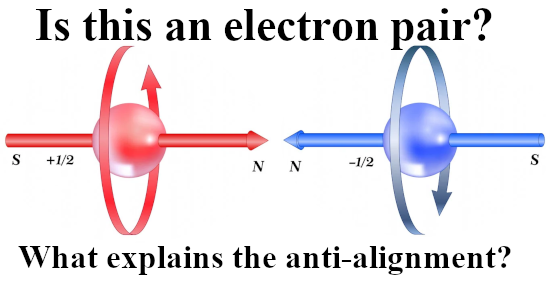This is now year nine or may be the tenth year that I started doubting that electrons were tiny bipolar magnets because it makes much more sense that they are magnetic monopoles. Over the years I have found out that logic just does not work and given the fact that physics people get a salery from tax payer money, that is weird behavior.
But physics professors behave just like math professors who after 33 years of doing just nothing will keep on doing that and never ever talk about the three dimensional complex numbers. What explains that kind of behavior, after all it’s all tax payer money so they should be a bit more humble don’t you think? The way I see it is that university people like math and physics professors are some elite. And I don’t mean an elite in the sense they are the very best at their science, no it’s just a collection of overpaid snobs. You must not think I am emotional or so by using the word snobs, no it’s a cold hearted classification of their behavior.
It is now 102 years since the original Stern Gerlach experiment and there is boatloads and boatloads of theory of how electrons should behave in case such an experiment is repeated (that is a squence of those magnetic fields) and it is easy to understand the very first experimental physics human that would do such a sequential SG experiment would likely be rewarded a Nobel prize. And in the physics community the Noble prize is what they all dream of. So in a century of time without doubt on many occasions such an attempt must have been undertaken.
But there is no trace of any such experiment in the literature, the only experiment that was done was by Frisch and Segrè where they tried to flip the electron spin and that all failed big time. But when building their experimental setup Frisch and Segre got advice from Albert Einstein and likely because of that they got their (non) results published and as such we can find it back in the present day literature.
What I found strange in the last 10 years is that a lot of scientists actually believe such experiments have been done. That goes for physics but also chemistry, a lot of them talk like such experiments have actually been done. Here is a link that abundantly shows that the author thinks such experiments have actually been done:
https://chem.libretexts.org/Bookshelves/Physical_and_Theoretical_Chemistry_Textbook_Maps/The_Live_Textbook_of_Physical_Chemistry_(Peverati)/22%3A_Spin/22.02%3A_Sequential_Stern-Gerlach_Experiments
Now why should a succesful sequential Stern Gerlach experiment lead to an almost 100% probability of getting a Nobel prize? That is easy to explain: It would validate in a deep manner that quantum states like spin states are probabilistic in nature and as such would be a fundamental thing in say all the present day attempts there are in building quantum computers.
Another way of understanding there are just no successful sequential Stern Gerlach experiments done in the last 100 years is simple to do: Go to Youtube and search for it, all you find is animations that explain how it “should work”. But none of those videos give a hint of an experiment actually done…
Is it true there are no Nobel prizes rewarded in the last 100 years related to a repeated or sequential SG experiment? Well in this year 2024 the Nobel prize committee has a website and guess what? They have a search applet for their very website. If you search for “Stern Gerlach” you get something like 12 results and if you serach for “Stern Gerlach experiment” you only get 6 results. None of those results says anything about experimental validation of all that spinor crap or anything that shows you can actually flip the magnetic spin of an electron. I made a picture for the other website as you can see below:

If you want you can go to the website of the Nobel prize committee and look for yourself if you can find such a prize rewarded. Here is the link: https://www.nobelprize.org/.
It’s all a big bunch of crap: Electrons are not tiny magnets, they carry magnetic charge just like they carry electric charge.
I am very well aware that logic does not work, but say to yourself about the crap of the electron pair they have over there in the physics community: The Pauli exclusion principle says that those electrons must have opposite spins so what does that mean if it is true that electrons are tiny magnets?
Well if they have anti-parallel or opposite spins, doesn’t it look like this:

But again logic does not work so I do not expect that in this year 2024 the physics people will stop talking their usual bullshit. No way, after all as a social community they are just another bunch of overpaid snobs…
After having said that, after about only one century of time there is only recently an English translation made of the publication of the original Stern Gerlach experiment. The translation is done by Martin Bauer and here is a link to the pdf as you can find it on the preprint archive
The Stern-Gerlach Experiment
Translation of: “Der experimentelle Nachweis der
Richtungsquantelung im Magnetfeld”
Link used: https://arxiv.org/pdf/2301.11343.pdf
That was it for this post, as always thanks for your attention.